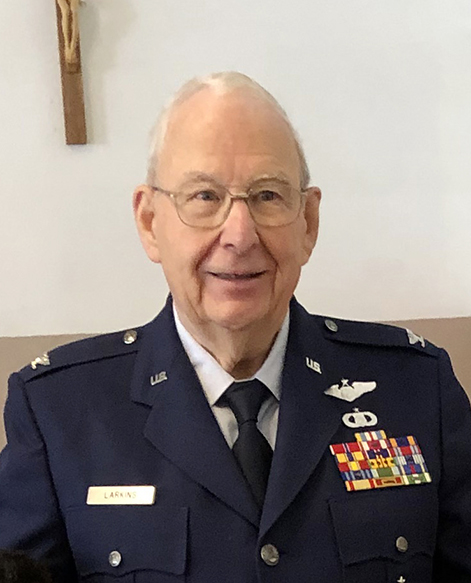By John Larkins
Most people never give much thought to the issue of belief in God or which Church, if any, to attend. While this attitude usually is reconsidered as we grow older, it often does not become very thoughtful or pressing. We may think of God in a personal crisis, such as the death of someone close to us, or perhaps some good fortune, such as an unexpected gift.
Church attendance, at first, is heavily weighed by going with family and later with close friends. In Alabama, we do not usually dwell on the fact that about 35,000 churches claim membership in America because there is local visibility for only a few – let us say 100 – and of those 100 persons. only about 10 are often noted. Would it be a surprise if we said that there was only one Christian Church for the first 1,400 of the last 2,000 years?
Today’s largest non-Ca-tholic Christian church, the Southern Baptists, did not have its beginnings until 1400 years ago, at which time it was vastly different from the Baptists of today. So, an obvious but frequently ignored question might be, “Who has the authority to establish a Christian church?” We might say, “only God has that authority.” This is obviously true, but among humans on earth, some person must be God’s messenger to organize other persons to worship.
In 1415, or thereabouts, several churches were organized as the first new Christian churches. Father Martin Luther, a member of Jesus Christ’s Church, concluded that Jesus had overstated His power in saying that the gates of Hell would not destroy His Church. Luther noted, in large part correctly, that the members and leaders of Jesus Christ’s Church had sinfully corrupted the Church. In a bold display of arrogance, he established the Lutheran church all by himself. Luther decided that corruption equaled destruction. At least there is no record of Jesus Christ being involved in this new church.
Soon afterward, the King of England grew weary of trying to get permission from the head of Jesus Christ’s Church to divorce the present queen (she had not given him a son). He eventually announced that he, the King of England, would establish the Church of England. The king then used brute force to exterminate Catholic priests, nuns and monks. This was injurous to the English people, since the monks had organized teaching farms to educate the peasants in farming and animal husbandry. The king’s new church would need buildings for schools, teaching and church ceremonies and it was very convenient and cost-saving to confiscate the many buildings that belonged to Jesus Christ’s Church. The king’s church later gave rise to Anglicanism and Methodism.
Later in time, and even currently, many new churches have been formed. Since they do not all accept Jesus as God, it is not accurate to call all of those churches “Christian.” So, there is a plethora of choices as to churches. As far as I can determine, we should choose a church with respect to the likelihood that we can obtain a relationship with Jesus to save our souls. While on earth 2,000 years ago, Jesus gave us all the knowledge we need to get started with obeying Him. In what is called The Great Commissioning, He told His Apostles to “Go into all nations, baptize them and teach them as I have taught you. Those who accept will be saved, those who reject you shall be damned.” For example, Jesus said, “If you love me, you will keep my commandments.” He also said, “Unless you eat my body and drink my blood, you have no life within you” (John 6: 53-59).
The teaching about His body and blood has nothing to do with grape juice and crackers. The Bible did not exist as a Bible until about 400 AD., when Catholics wrote the New Testament. The printer, a Catholic, chose to print the Bible as his first product in 1452. For 1,400 years, The Bible was translated into many languages and used throughout the world. Martin Luther was first to revise its many forms available today. God’s true words are in the Bible, our source of truth. Beware of trickery.
For the past 17 years, John Larkins has evangelized on the street, door-to-door, in tent revivals and in church situations. Contact him at johnlarkins@bellsouth.net.





